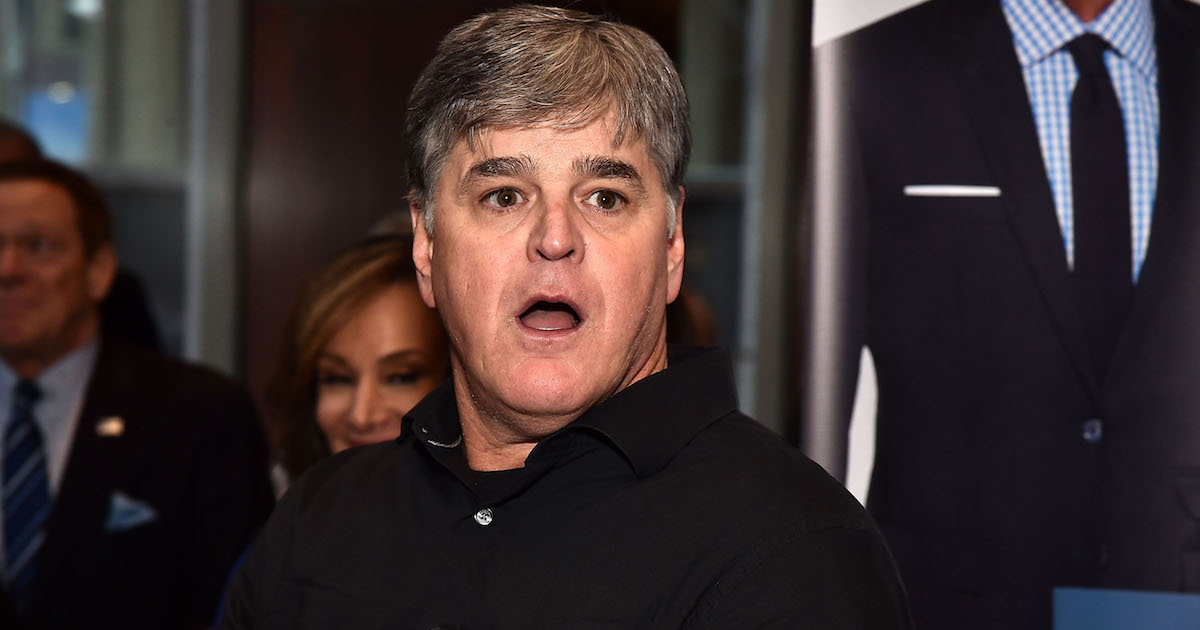
I arrived at the U.S. District Court for the Southern District of New York roughly half an hour before Monday’s hearing. Lines were long and most observers were shuffled into two overflow rooms. At the last minute, Michael Avenatti and Stormy Daniels showed up–and were almost denied entry. But Avenatti protested a bit and he and his client were scooped up by bailiffs immediately before the hearing began.
The first issue to be dispensed with was the name of Michael Cohen‘s super secret client–eventually and painstakingly revealed to be Sean Hannity. None of this went the way Cohen’s attorneys had hoped, of course, but the ultimate resolution to the attempted hiding of Hannity’s identity was entirely a self-inflicted wound on the part of Cohen’s legal team.
Prosecutor Thomas McKay was eager to move beyond the mystery portion of the hearing and argued that “if Cohen can’t disclose his client’s name to the court or a review team under seal,” then he couldn’t possibly be expected to oversee the initial privilege determination.
Judge Kimba Wood was clearly inclined to agree. She began addressing Cohen’s attorney Steven Ryan and said that under no circumstances could Cohen withhold the client’s name in perpetuity. Judge Wood noted:
That is not in accord with the law in this district.
Ryan responded by offering a series of argument-like non-starters that were then summarily rejected.
First, Ryan noted that the secret client was a “publicly prominent individual”–to audible murmurs in the courtroom. Second, Ryan argued that “no one would want to be associated with” Michael Cohen as a client at this point due to the press coverage surrounding the raid specifically and the case generally. Third, Ryan said the client had personally contacted Cohen and his team over the weekend to request that their name not be shared and that Cohen appeal any decision by the court to reveal his name.
At this point, Ryan made several offers to hand over Hannity’s name in a sealed envelope while noting, “I’m simply trying to protect the privacy of that individual.” Wood was sympathetic to this line of thought and accepted the envelope idea was a valid way of telling her the client’s name, but insisted that the government–by way of McKay–be included as well.
Thus, the envelope idea was turned into a compromise–Hannity’s name would not have been revealed publicly–only Cohen’s team, Judge Wood and McKay’s team would have known. Instead of accepting this compromise, however, Cohen’s attorneys pressed on and continued to argue their point.
At this point, an amicus curiae for the press was allowed the opportunity to speak and tore into Cohen’s legal arguments by noting that the case cited to by Cohen’s attorneys to protect Hannity’s name actually stands for the proposition that there is no general application of the attorney-client privilege as it relates to the disclosure of a client’s name.
It was also noted that there were various instances in which the privilege could be claimed to protect a client’s identity–but only under certain circumstances and that Cohen had met none of those circumstances. The following paragraph from the case law on point here was then read aloud:
Disclosing the client’s name would not necessarily reveal his or her purpose in consulting attorney Vingelli. The client may harbor concern that he or she will be tarnished by guilt by association. Fear of such a tinge does not suffice to show that revealing the client’s identity would be tantamount to exposing the purposes for which the client sought legal advice. The rule governing the unprivileged nature of client identification implicitly accepts the fact that a client might retain or consult an attorney for numerous reasons. Thus, the fact that disclosure of Vingelli’s client’s identity might suggest the possibility of wrongdoing on his or her part does not affect analysis of whether disclosure would reveal a confidential communication.
This is known as the Vingelli standard. Wood noted that Todd Harrison, Cohen’s lead attorney, had simply not met the standard here. Harrison did not contest that–despite having cited to the Vingelli case in the first place.
Cohen’s team then complained that had the government used a subpoena instead of a search warrant, the name would have never come up in the first place. With slight frustration, Wood said, “This isn’t a subpoena.”
The next argument literally stunned the court room into silence. Harrison credulously argued–or attempted to argue–that were Sean Hannity’s name revealed, people might stop hiring attorneys. After pausing for a few seconds, Wood finally said, “That’s not enough under the law. I don’t understand it factually.”
Then she ruled against Cohen’s secrecy request–prompting Harrison to ask whether he should use the envelope or just say it out loud. Wood said, “Whatever you’re most comfortable with.”
No envelopes were passed to the court on Monday.
[image via Photo by Theo Wargo/Getty Images]
Editor’s note: this article has been amended to clarify the attorneys involved.
Have a tip we should know? [email protected]